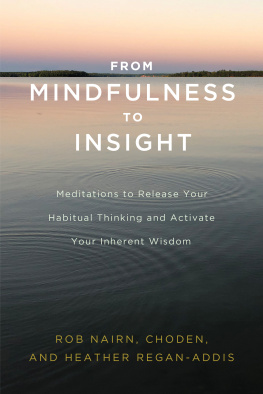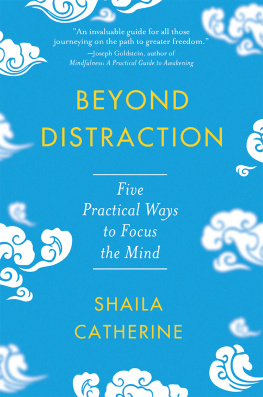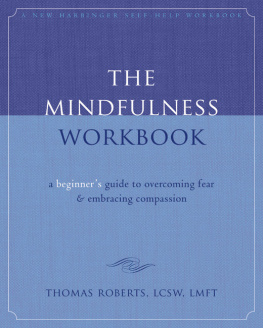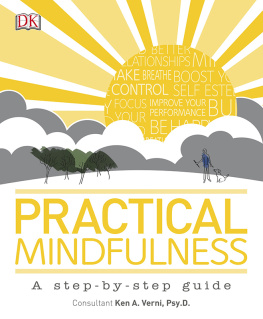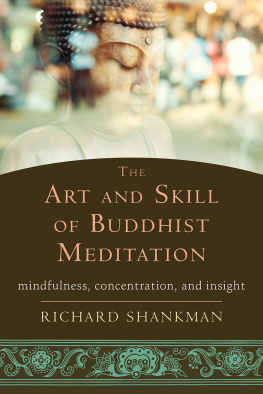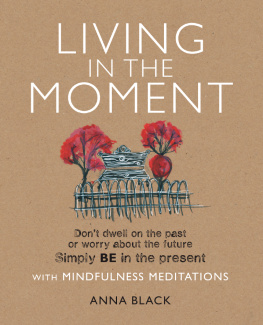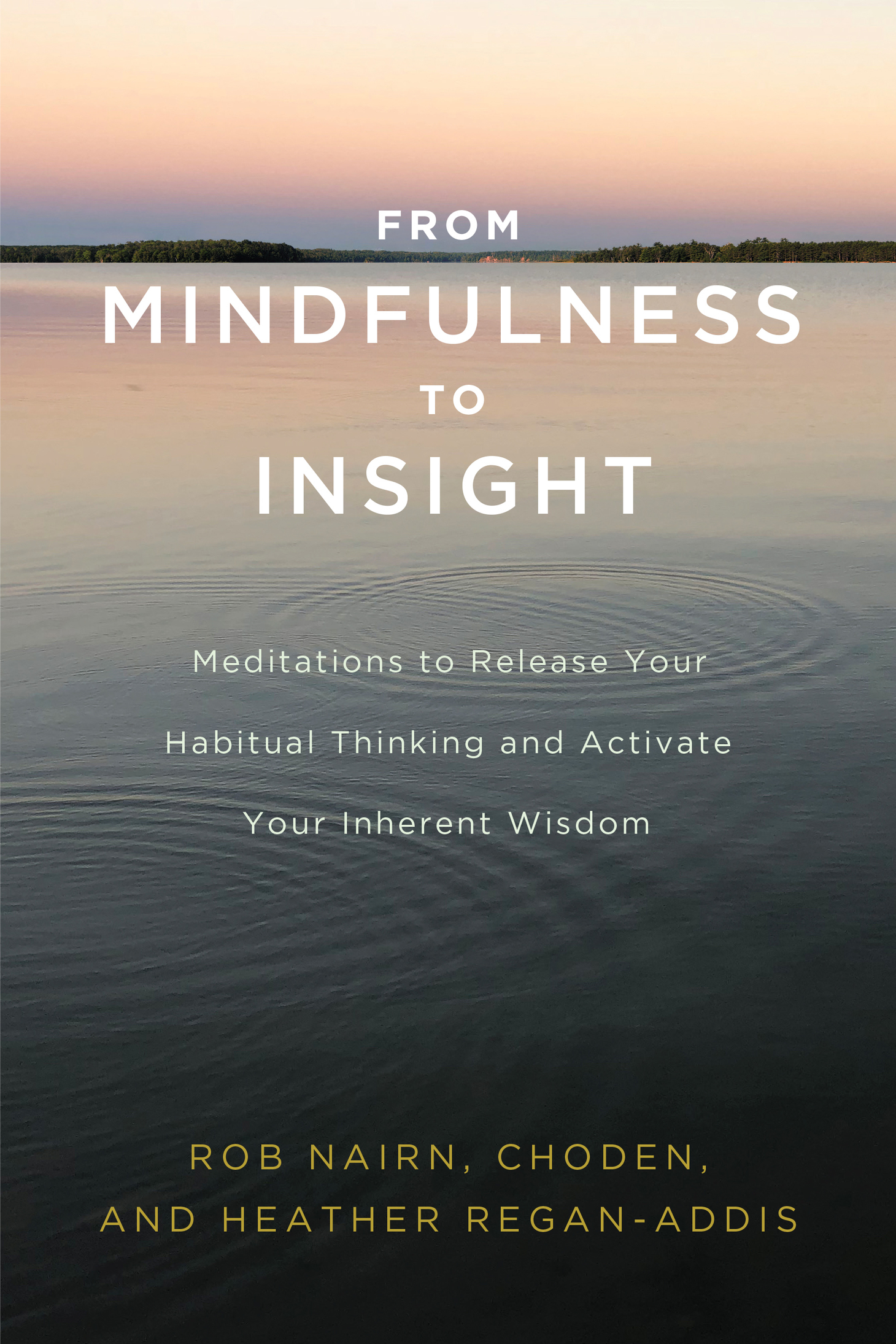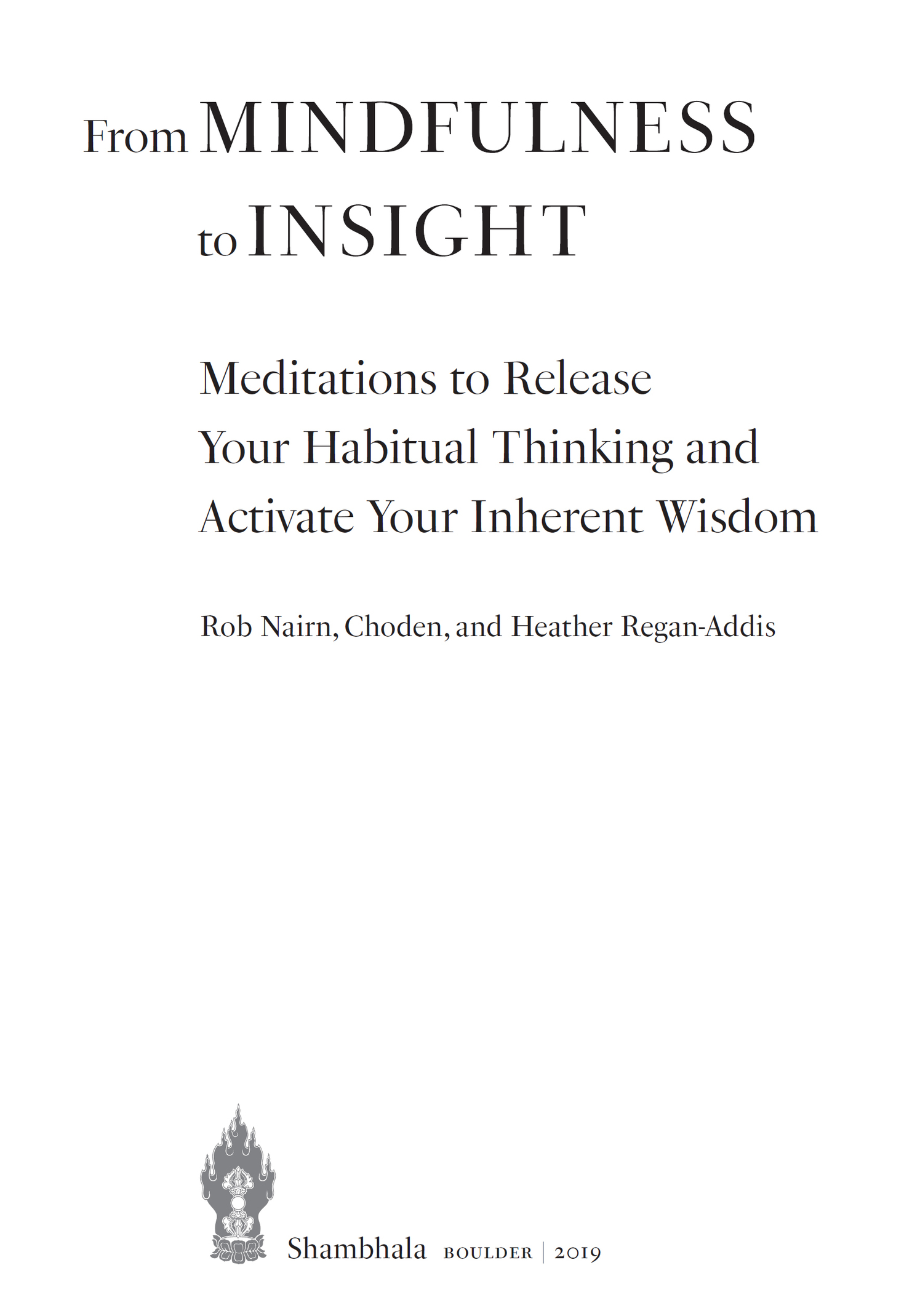Shambhala Publications, Inc.
All rights reserved. No part of this book may be reproduced in any form or by any means, electronic or mechanical, including photocopying, recording, or by any information storage and retrieval system, without permission in writing from the publisher.
Cover design: Gopa & Ted2, Inc.
NAMES : Nairn, Rob, author. | Choden, author. | Regan-Addis, Heather, author.
TITLE : From mindfulness to insight: meditations to release your habitual thinking and activate your inherent wisdom / Rob Nairn, Choden, and Heather Regan-Addis.
DESCRIPTION : First edition. | Boulder: Shambhala, 2019. | Includes bibliographical references and index.
IDENTIFIERS : LCCN 2018029559 | ISBN 9781611806793 (pbk.: alk. paper)
SUBJECTS : LCSH : Meditation. | Insight. | Mindfulness (Psychology) | BuddhismPsychology.
Classification: LCC BL 627 . N 35 2019 | DDC 294.3/4435dc23
Preface
Mindfulness has been the flavor of the month for a long time, but insight has remained a fairly neglected area, perhaps because it is more subtle and elusive.
Both these terms describe stages in our training to free the mind. This concept of freedom is puzzling until we develop our self-reflective processes sufficiently to expose our fundamental state of delusionhow it arises, holds us in its blind grip, and finally dissolves in the face of mind training. That dissolving happens naturally when we create the conditions for insight to arise.
This book is a practical guide to creating the conditions for insight and therefore inner freedom. The emphasis is very much on experience, not theory. If you want to free your mind from delusion, this is a good place to begin.
Acknowledgments
We have many people to thank for their advice, support, and encouragement. We are truly fortunate and grateful to our teachers, family, and friends. We would like to thank our teacher Lama Yeshe Losal Rinpoche for his teaching, advice, and constant support for the Mindfulness Association and for us all personally. We would like to acknowledge the contribution that Vin Harris has made to the development of the curriculum of the Insight course, which is the subject of this book. We would also like to thank Fay Adams, one of the tutors of the Mindfulness Association for her contribution to the book, and all the other tutors who have taught on the Insight curriculum. We would like to give special thanks to Isabel Coughlin for so diligently proofreading the final draft of the book, and to Lisa Hellier for her graphic design work on the two figures. Finally, we would like to thank our many course participants over the years for their engagement with the Insight curriculum as it has developed.
Choden acknowledges with gratitude the teachings he received from Khenpo Lhabu (Drupon Rinpoche) and how they have matured his understanding of training the mind.
Heather would particularly like to thank her colleagues in the Mindfulness Association office for their love and support, and these are Jane, Alan, and especially Helenheaven must be missing an angel!
We hope that this book will help to bring freedom from the conditioning that governs and limits our lives so that our human potential to bring benefit to the world can flourish.
INTRODUCTION
From Mindfulness to Insight
In recent years, there has been a great deal of interest in mindfulness. As modern life has become increasingly complex and stressful, more and more people have come to realize that happiness does not lie in changing the external conditions of their lives but in turning inward and changing the way they relate to their minds. The revolution of mindfulness is based on the realization that the stream of thoughts, feelings, story lines, and images that flow through our minds do not define who we are. What is more important is the faculty of awareness that observes and reacts to this stream of thoughts and feelings because this faculty can be trained. We can learn to establish a different relationship with our inner experience. Even though this understanding has been present for 2,600 years in the Buddhist tradition, there is now a substantial evidence base attesting to the benefits of mindfulness. This has enabled it to be embraced within secular mainstream society as something that one can receive training in.
Moreover, there is now growing interest in compassion. It is increasingly regarded as a powerful complement to mindfulness. Through psychological insights and neuroscientific research, compassion is now being adopted into mainstream thinking. For many people, training in compassionparticularly self-compassionis an essential follow-on to training in mindfulness. Since self-criticism, shame, and self-attacking is so widespread, we need actively to cultivate kindness and acceptance toward what we are feeling.
In our experience of training people in mindfulness and compassion, we have noticed significant changes in peoples lives, but our perception is that these changes do not go to the root of the matter. This book is about going to the root of the matter.
Lets explore what we mean by using the analogy of a jar of muddy water. If we stir up the mud in the water, we cannot see through the jar. Similarly, engaging in compulsive thinking activity is like stirring up thoughts so that we are unable to see clearly what is going on in the mind. However, if we leave the jar alone, the mud settles to the bottom of the jar and we can see through the clear water. The mind is the same. If we learn to leave it alone, some of its thinking activity settles down and there is more clarity and presence in how we go about our lives. This is one of the key roles of mindfulness training: learning how to notice and disengage from reactive patterns of thinking.
We might not be happy with a lot of what is happening, such as memories that we are ashamed of or emotions that we dont like to feel. An important part of this process, therefore, is training ourselves to observe the mind with an attitude of kindness, curiosity, and self-acceptance. This is the basis of the training in compassion. We start building inner resources that, over time, help us to face our suffering with more equanimity. Going back to the analogy of the jar of muddy water, this is the process of getting to know and accept the mud, and to bring kindness to ourselves for having a jar of muddy water as our very own mind! It is based on the understanding that we are all in the same boat, that being human is not at all easy, but that we can radically shift our experience by giving ourselves (and then others) some kindness and care.
What we fail to see, however, is the hand that silently and stealthily takes up a stick and stirs up the mud in the jar. We notice that our minds are stirred up by thinking, but we fail to see the underlying habits that are constantly being activated. Many mindfulness and compassion practitioners comment that they repeatedly experience the results of the same habitual patterns. This can make it feel as if mindfulness is a long and grinding process of becoming aware of uncomfortable feelings without an end in sight. The problem is that we have not got to the root of the problem, and so it keeps repeating itself, as habits do.

